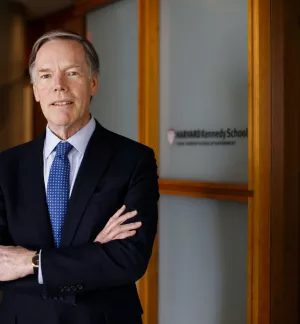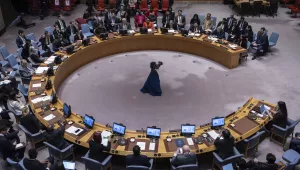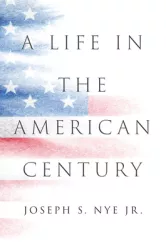Anime and manga. Art conferences. Coffee prepared with sugar. Soccer games. These things seem hardly relevant to the cutthroat negotiations and politically charged interchanges that jump to mind at the mention of international diplomacy. However, countries throughout the world are turning to popular culture – entertainment, sports, national traditions – as a way of improving their international image and furthering their foreign policy goals. The use of pop culture as a diplomatic strategy stands in appealing, warm, and humane opposition to the threat of military power. “Cultural programs are a demonstration of our good faith. They can help to change the mood if successful,” said Nicholas Burns, former Under Secretary of State under the Bush Administration and Harvard Kennedy School professor. But the success of this style of soft diplomacy is not guaranteed, and the use of culture as a pragmatic mechanism is questionable as well. While a reliance on pop culture as a means of soft diplomacy and nation-branding has significant potential for international relations, nations must be cautious in their deployment of these practices. An analysis of recent initiatives in Japan, Britain, Turkey, and the United States reveals both the possible benefits and pitfalls of soft diplomacy and nation branding through popular culture.
Perhaps the most salient example of the soft diplomacy phenomenon is Japan’s “Pop Culture Diplomacy.” The Japanese government’s program uses anime (animated cartoons) and manga (a style of comic) in an attempt to achieve foreign policy goals. Both art forms enjoy a broad audience, inside and outside of Japan.
The Japanese government asserts that the worldwide promotion of manga and anime through competitions and festivals serves the purpose of furthering “understanding of and trust in” Japan. The initiative began in 2007 with the establishment of the International Manga Award. At the Eighth International Manga Award in February 2015, the Parliamentary Vice-Minister for Foreign Affairs, Kentaro Sonoura, gave the keynote address. Crystallizing this goal, he said, “Of all the attractive things that Japan has, manga and other forms of pop culture have powerful appeal worldwide…[this] is an important asset that provides robust support for Japanese diplomacy.” Sonoura called manga a “gateway” to Japanese culture: a widespread, popular form of media that could serve to introduce foreigners to deeper, less-known aspects of Japanese society. He also discussed the ability of pop culture diplomacy to increase the number of “friends of Japan.”
Other subsets of the pop culture diplomacy initiative include an Anime Ambassador program and the annual World Cosplay Summit, both of which also focus on the use of popular media to build Japan’s image as friendly, likeable, and relevant. In order for this image to reach beyond the annual conferences and push Japan’s foreign policy goals forward, the country’s new friends would need to lend it significant political clout. A direct effect of this type has yet to be seen on the world stage. But Japan is not alone in its endeavors.
Thousands of miles away, in a more aggressive and wide-reaching strategy, Britain also attempts to strengthen its international relationships through the arts. The British Council heads up several art- and education-based initiatives centered on British culture. Much like that of Japanese pop culture diplomacy, the Council’s stated aim is to build multilateral connections between disparate groups and the United Kingdom. And, like the Japanese state, the British government does not mince words when describing the importance of its aims: the Council’s use of art is meant to “lay foundations for prosperity and security around the world.” Art and popular culture are elevated to a place of serious practical importance – not only do they matter to the preservation of national heritage, they are now elements of weighty foreign policy.
The Council’s 2015-2017 corporate plan pushes this point further, framing its actions as a way to attract “people who matter to our future” – those who could lend Britain political capital or increase its influence. Rather than attracting those people through traditional incentives or the use of hard power, the Council intends to do so through engagement with “the UK’s vibrant cultural and arts scene…and diverse, modern, open society.” The ambitious program aims to reach 30 million people digitally and 24 million people in face-to-face interaction. Its top priority is “the use of soft power and of culture and education to shape long-term attitudes towards the UK globally.” The Council also focuses on regional issues, including stability and security in the Middle East, North Africa, South Asia, and Ukraine.
Unlike Japan, Britain places itself in a world leadership role. The Council is outward looking; rather than attempting to draw people to Britain, it hopes to strengthen the connections between all countries in order to build international stability. The Council uses British culture and art both to encourage an understanding of the UK and to place the country in a philanthropic, collaborative light. Furthermore, instead of simply increasing awareness among an already-present audience, the Council aims to bring programs to vulnerable – and valuable – populations. Finally, the British Council places greater weight on the potential of soft diplomacy to further global security. While Japan’s pop culture diplomacy simply aims to increase supporters, the British Council hopes to reach and stabilize some of the world’s most volatile regions through art and cultural education. The British Council also uses more explicitly pragmatic diction, with a strong focus on the future and less emphasis on the value of cultural traditions.
The Council’s broad scope and practical angle mean that Britain’s programs may have a greater chance of success. Its global reach and wide appeal indeed have the potential to bring very different groups together and thus to further positive relationships. However, as will be discussed, a lack of qualitative assessment of soft power makes it difficult to draw definite conclusions about efficacy. Furthermore, the British Council’s practices raise questions about culture’s role as a political mechanism – an issue also revealed by nation branding strategies in countries like Turkey and the United States.
In addition to attracting global citizens through pop culture, nations attempt to improve their own image by promoting popular traditions. The concept, referred to as nation branding, is a logical extension of contemporary marketing and capitalist ideology. Efforts to build a nation’s brand are sometimes small-scale and crowd-sourced, as seen in Turkey; on the other end of the spectrum, initiatives like the United States’ Sports Diplomacy Program are state-driven and far-reaching.
Turkish citizens are attempting to improve their country’s sometimes less-than-favorable image through a website called Turkayfe. Turkayfe, a blog-like interface that relies on articles written by citizens, immediately asserts that world news only focuses on negative aspects of the country. The homepage’s author argues that the media neglects to mention Turkey’s position as the only secular democracy in the Muslim world and that it has free and fair elections, a free press, and a free market economy. Additionally, the site takes issue with the positive aspects of Turkey’s international image, saying that there is more to Turkish culture than “carpets and the sea.” The page emphasizes the importance of brands, arguing that the perception of a country has “an important impact on several issues, such as attracting foreign investment…and wielding political influence.” Much like the Japanese and British initiatives, Turkayfe focuses on the way that soft power can yield political influence. However, it places greater importance on the outside perception of Turkey as a whole than its ability to attract fans through specific programs.
Turkayfe calls upon Turkish citizens to improve Turkey’s brand through discussion of its popular culture. Described as a “virtual coffeehouse,” Turkayfe draws inspiration from Turkey’s traditional coffeehouses, where citizens linger and discuss local and global issues while sipping sweet drinks. The website features pieces on culture, people, education, entertainment, business, habitat, and “global Turkey”; article titles range from “Turkish Coffee and Cultural Diplomacy Are Remembered with Appreciation for 40 Years” to “Exploring History in Selcuk” and “Turkey, a Land for All Seasons.” The pieces share a common theme: emphasizing Turkey’s culture and traditions, rather than its sometimes-precarious international position. This attempt at rebranding, if successful, could have beneficial results. By painting Turkey as both a cultural hub and a center for democracy and free expression, its favor in the West could grow – a boon for international relations. However, just as in Japan and Britain, the success of this initiative remains to be proven.
The United States, meanwhile, has already projected its democratic, liberating brand throughout the world. However, some of its recent actions have damaged this reputation. Instances like the Iraq war and other installations of dictators in the Middle East, as well as the nation’s general reliance on military power to quash opposition, have created significant resentment towards the United States. The US has turned to popular culture, specifically sports, in an attempt to remedy this harm to its brand.
The Sports Diplomacy Program, run through the State Department’s Bureau of Education and Cultural Affairs, intends to make use of the “universal passion for sports to transcend…sociocultural differences.” The US is attempting to capitalize on the global popularity of sports to appeal to youth in alienated countries. Of sports exchanges with Iran, Burns says, “we thought of sports diplomacy as a way to try to connect with the Iranian people.” Sports diplomacy largely centers on sports exchange or visitor programs. For instance, in late 2013, the Bureau engaged in a soccer exchange program with Iraqi girls; in April 2014, two US Women’s National Team players visited Iraq to continue the relationship. Other events have included a hockey exchange with Russia, basketball in Senegal, a Pacific Islands track and field delegation, and a visit from Tunisian swimmers. By appealing to the excitement and popularity surrounding sports, the US hopes to endear itself to the younger generation in countries where it is currently viewed in a negative light. Additionally, through programs involving females, especially in countries that often bar girls from participating in athletics, the US appears progressive and human rights-focused. Finally, by acknowledging and making use of sports’ reigning position in popular culture, the US seems in touch with people across the world, rather than cold and aloof.
In some ways, the Sports Diplomacy program is a blend of soft diplomacy and nation branding. By engaging a younger generation, the US attempts to guarantee allies for future years, thereby increasing its political power; by encouraging women in sports and using its resources to strengthen connections between groups, the US hopes to maintain its international standing as a progressive, globally-minded nation.
The United States’ sponsorship of youth soccer, Turkey’s reliance on coffeehouse-style discourse, Japan’s comic competitions, and Britain’s emphasis on arts and education seem ideal and humane compared to hard-hitting diplomatic efforts reliant on power dynamics and threats. Indeed, the use of popular culture in soft diplomacy may be an effective way to build international trust and create a more welcoming global atmosphere. However, the questionable success and the implications of these initiatives mean that they must still be approached with caution.
The clearest question about the use of pop culture in diplomacy is that of its effectiveness. While Japan’s manga conferences might attract a cultural audience, that does not necessarily translate into genuine soft power for tough diplomatic issues. Instead, pop culture diplomacy may simply enhance Japan’s image as an appealing country, without lending it significant political weight. The program is still young, but so far, it has not had any major documented impact. Similarly, Turkayfe is disconnected from Turkey’s government and has not been widely publicized. Both of these factors prevent it from directly affecting Turkey’s image and its diplomatic power. While this type of crowdsourced initiative is innovative, it will likely take a significantly more time and investment to shift deep-rooted global perceptions. “I see [these programs] as helpful, but tertiary. They’re not central to a nuclear negotiation, a war and peace negotiation, a trade negotiation,” Burns said.
The British Council and the United States’ Sports Diplomacy program face similar issues. Both initiatives are ambitious, enjoy a significant dedication of resources, and are strongly backed by their respective governments. However, their effects have not been clear. A major problem is evident here: the impact of these types of programs is very difficult to measure. Soft power manifests itself qualitatively – in the shift of popular opinion and its resulting impact on diplomacy – rather than quantitatively. While these qualitative effects can be equally important, they make cost-benefit analysis for governments more complicated. “Governments struggle with this issue,” Burns said. He noted that “there are times when you can measure it,” such as international polling. However, he concludes that “it’s hard to know what prompted a change.” This means that it is difficult to determine where resources should be allocated. For instance, are the resources necessary to sustain the Sports Diplomacy program justified, or should the US direct them towards more concrete efforts to help children in vulnerable countries, such as strengthening education systems? Should the Japanese government focus on building stronger alliances with other diplomats, or is the attention its manga award draws just as beneficial? The current style of soft diplomacy through popular culture and nation branding are both relatively recent phenomena, so more time may be necessary to determine their long-run effects. Regardless, though, governments need a careful system for assessing efficacy and efficiency of these strategies to ensure that they are best directing their resources – something that may be challenging to achieve.
Implications of the practical use of popular culture
A second and thornier issue is that diplomacy shifts the role of popular culture from a valuable piece of a nation’s heritage to a pragmatic mechanism. It is possible for popular culture to maintain its integrity while also attracting members of the global community or contributing to a positive aspect of a nation’s image. However, soft power practices put the current role of popular culture at risk. Through its use of art as a means to encourage worldwide security, for example, the British government could implicitly devalue the art itself. The Japanese government’s view of manga and anime as another tool to entice supporters threatens to overtake genuine appreciation of the art forms. And Turkayfe’s plea for Turkish citizens to write blurbs about the positive aspects of their nation in order to shift the world’s opinion again redefines culture as a bargaining tool.
While the use of popular culture is certainly preferable to military force from a humanitarian standpoint, it is sadly an unrealistic substitute in the current global context. And in the meantime, then, popular culture for the sake of preserving national heritage – and for celebrating humanity – is endangered. It is easy for political aims to take precedence. But the use of popular culture as another means of diplomacy and power building should be viewed warily. Otherwise, nations risk sacrificing the natural relationships created by a shared, valued culture for artificial relationships with other groups.
The rise of soft diplomacy and nation branding through popular culture is an intriguing development in international relations. Anime and manga, art conferences, coffee prepared with sugar, and soccer games are transformed from popular traditions to political and diplomatic mechanisms: means of garnering support, influencing other groups, or improving outsiders’ opinion of a nation. A positive, collaborative alternative to traditional diplomacy, pop culture diplomacy is appealing and potentially effective for many reasons. When embarking on soft diplomacy initiatives, though, countries must be cautious in their assessment of success; more importantly, they must avoid exploiting and devaluing an invaluable aspect of the human experience.




